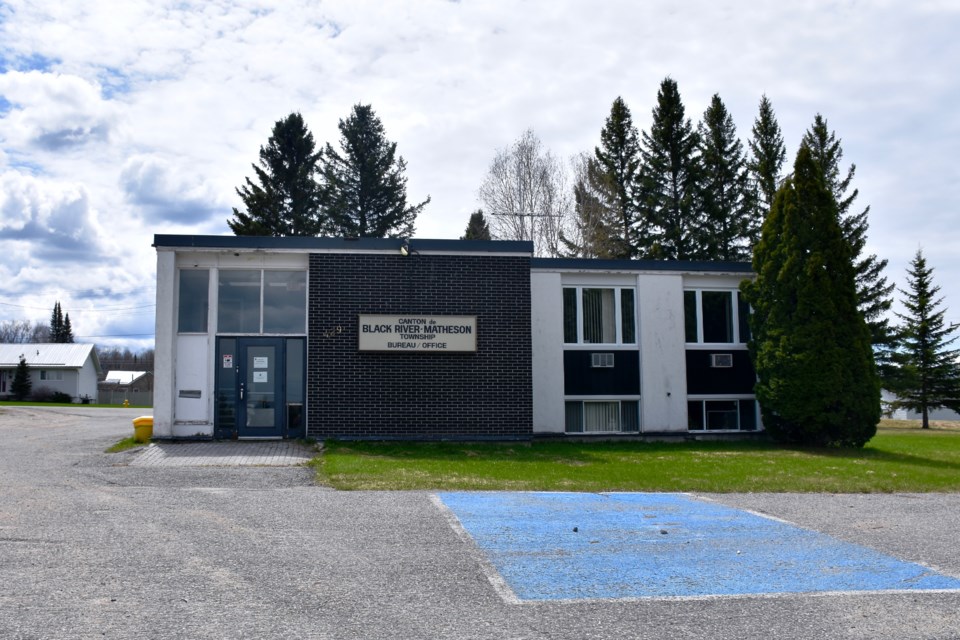BLACK RIVER-MATHESON - A former Black River-Matheson mayor is voicing concerns regarding the dissolution of the township's council and highlighting the potential impacts of the municipality not having a seat at multiple decision-making tables.
It’s been over a month since all township council members were ousted.
While there were months of uncertainty before that while councillors executed a plan to have the province step in to vacate the seats, the township still had a sitting mayor who could attend conferences and had a seat on local boards. It will be another couple of months before that can happen again and a former mayor and the township’s top staffer are sharing what that means for the municipality.
Mike Milinkovich started working in Black River-Matheson in 1957. After retiring, he served as mayor from 2006 until 2014.
The 88-year-old told TimminsToday it’s critically important for council members to attend conferences.
“There's conferences that are within Northern Ontario, like Northeastern Ontario Municipal Association (NEOMA) and things like that. But the Association of Municipalities of Ontario (AMO) conference, that is a key one,” he said.
“You have an opportunity to talk to ministers, you have an opportunity to talk to other mayors, and people from other municipalities.”
This year’s AMO conference is Aug. 18-24. It's days after the byelection on Aug. 12, but too late for the new members to attend, said Matheson CAO Chris Wray.
It was an AMO meeting where Milinkovich made the connections needed to help an agricultural plan take root in the area.
Reintroducing agriculture in the north is one of the reasons he entered municipal politics. At a conference he attended as mayor, there was a presentation from a woman from Queen’s University.
“She described how her department was able to help the farmers from southwestern Ontario who had to quit growing tobacco. She was able to help them start planning different kinds of models for the agriculture that they could be successful at.”
Following the conference, Milinkovich wrote her a letter about his farming initiatives and she connected him with a department head at the University of Guelph.
Milinkovich ultimately received a business plan and analysis about agriculture in northeastern Ontario from a university student, which led to the creation of an agriculture steering committee with representatives from Highway 11 municipalities.
“We got together and I created a program that I thought that we should try to work together on and that worked very well,” he said.
Although NEOMA hasn’t met since council was dissolved, there’s currently no political representation there either, said Wray.
The Federation of Northern Ontario Municipalities (FONOM) happened last month and had no council representation, however, Wray said he attended.
The next conference the new mayor or council members can attend is the Rural Ontario Municipal Association (ROMA) conference in January.
SEE: Matheson council kicked out of office, here's what we know so far
RELATED: Matheson's heading to the polls, byelection set for Aug. 12
In the region, the byelection also means that Matheson doesn’t have a voice on the Cochrane District Social Services Administration Board (CDSSAB), the MICs Group of Health Services and the Porcupine Health Unit.
“Which right now the health unit, Timiskaming and Cochrane are talking about merging, and so we have no voice there, and that's a little concerning,” he said.
The municipalities of Matheson, Cochrane and Iroquois Falls have also been working together on Frontier Spirit Physician Recruitment, a not-for-profit corporation established in hopes of helping recruit physicians to the north.
“There was a committee for that that the mayor sat on ... but he no longer has a seat because he's not the mayor. And things are going on there. Like, they're moving. So we'll have to make sure that we get a representative on that committee as well,” Wray said.
SEE: Potential new doctor tours Cochrane
When the Minister of Municipal Affairs and Housing declared the Matheson council seats vacant, provincial bureaucrat Kathy Horgan was appointed to make decisions until new members are elected.
One of the items that’s been on hold due to the dissolution of council is this year’s budget, which will be presented to Horgan this month, Wray said.
“Our hope is that we get a budget finalized sometime in July. It's late, but it's not fatal,” he said.
The forced byelection has created some chaos for the town, he said.
“It's never happened before. And so there are situations that have arisen, or that might come to council, that the council appointee requires more information, more information than a regular council would require, which creates more work for us,” he said.
“Not the fault of the appointee. She is just working with legal council at municipal affairs to make sure that their t's are crossed and i's are dotted, so they're not second-guessed. There is a flow of increased complaints to the council appointee, which are, in a lot of cases, nonsensical, but regardless, they have to be addressed.”
Wray said the town being understaffed isn’t helping the situation.
“With the CUPE matters settled, that's back to work as usual. So we're good there. But we've got at least two positions that are vacant in the office, and that creates a bit of a problem as well,” he said.
“But you know what, it is what it is. We take it one day at a time and try and do the best job we can. Document what we can. Put things in place where we can to help. And we'll wait for August, for the new council to come in, and away we go.”




.png;w=120;h=80;mode=crop)